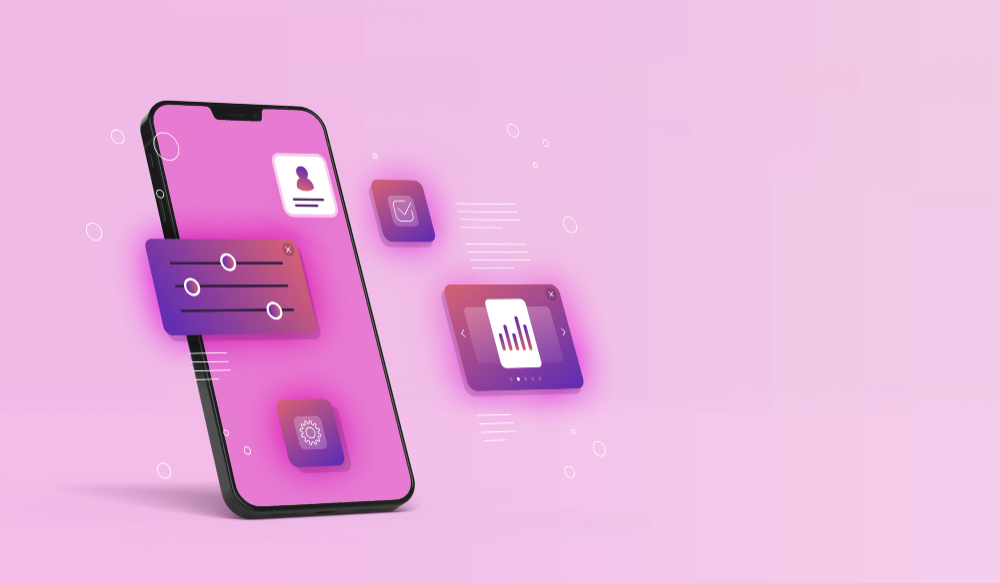For over a decade, apps have been at the centre of our digital lives — gateways to shopping, entertainment, payments, mobility, and even healthcare. But something fundamental is shifting. Artificial Intelligence (AI), once seen as a futuristic add-on, has become the engine that is redefining what apps are, how they work, and what users expect from them.
The question is no longer “Is AI changing apps?” The real question is: “Are apps evolving into something entirely new because of AI?”
From Static Utility to Living Systems
Traditionally, apps were reactive tools — you opened one, performed a task, and closed it. AI has transformed them into living systems that learn, adapt, and evolve.
- Streaming apps now understand moods, creating playlists not just from history but from the time of day, weather, or even your recent activity levels.
- E-commerce platforms don’t just “recommend”; they predict, nudging you with products before you even know you need them.
- Fintech apps spot fraudulent behaviour in seconds while personalising investment journeys at scale.
Apps are shifting from being functional to being anticipatory. This is a structural change in design, not just an incremental improvement.
The Three Forces Driving the Shift
- Data Gravity
Every tap, swipe, and scroll generates data. Add wearables, IoT devices, and smart sensors, and you have a goldmine. AI thrives on this — turning raw behaviour into insight, and insight into prediction. - Generative AI and LLMs
Large language models have democratised intelligence. Today’s apps can write, converse, and create, blurring the lines between human and machine interaction. Customer service bots are now advisors; productivity tools are co-creators. - Edge and Cloud Synergy
The heavy lifting of AI doesn’t just sit in massive data centres anymore. With edge computing, intelligence is coming closer to the user — making experiences faster, more seamless, and context-aware.
Shifting User Expectations
AI is not just changing apps; it is changing consumers. Users now expect:
- Personalisation as default, not premium.
- Instant response, not wait times.
- Proactive service, not passive functionality.
But expectations are also layered with concerns of trust. Privacy, bias, and transparency have moved to the top of the priority list. An AI-enabled app that doesn’t explain itself risks alienating the very users it seeks to engage.
Business Implications: From Tools to Growth Engines
For businesses, AI-powered apps are no longer just engagement channels — they are strategic growth multipliers.
- Higher retention through hyper-personalised journeys.
- Cost efficiencies from predictive analytics and process automation.
- New revenue streams as conversational commerce, AR-driven retail, and embedded finance take hold.
Importantly, AI allows businesses to reimagine entire categories. Fitness apps can evolve into health ecosystems; transport apps can morph into mobility marketplaces; education apps can become lifelong learning companions.
The Future: Do Apps Even Exist Tomorrow?
Here’s the irony: the more AI permeates apps, the less visible apps may become.
Tomorrow’s apps might not sit as icons on a home screen. They could manifest as:
- Voice-driven assistants embedded into everyday devices.
- Augmented reality overlays guiding us through real-world experiences.
- Ambient intelligence that flows across platforms, anticipating needs seamlessly without ever being “opened.”
In other words, AI might make the app itself disappear — or rather, dissolve into the fabric of daily life.
The Age of Trained Apps
We are moving from a world where apps were built to one where apps are trained. That difference is seismic. It signals a future where technology is deeply human-centric, but also infinitely scalable.
Yes, AI is changing apps. But the bigger truth is this: AI is changing us, and apps are simply keeping up.
The apps of tomorrow will not just answer our queries — they will understand our contexts, anticipate our aspirations, and quietly shape our choices.
That is not an upgrade. That is a revolution.

